 W
WThe Royal Norwegian Order of Saint Olav is a Norwegian order of chivalry instituted by King Oscar I on 21 August 1847. It is named after King Olav II, known to posterity as St. Olav.
 W
WUlf Aas was a Norwegian illustrator. He worked for the newspaper Aftenposten from 1948. He has contributed with illustrations to more than 200 books. He was decorated Knight, First Class of the Royal Norwegian Order of St. Olav in 1999.
 W
WRenato Alessandrini was an Italian explorer, perished during the polar expedition of the airship Italia.
 W
WPeter Nicolai Arbo was a Norwegian historical painter, who specialized in portraits and allegorical scenes from Norwegian history and the Norse mythology. He is most noted for The Wild Hunt of Odin, a dramatic motif based on the Wild Hunt legend and Valkyrie, which depicts a female figure from Norse mythology.
 W
WEdvard Beneš was a Czech politician and statesman who served as the President of Czechoslovakia from 1935 to 1938 and again from 1945 to 1948. He also led the Czechoslovak government-in-exile 1939 to 1945, during World War II.
 W
WBrynjulf Larsen Bergslien was a noted Norwegian sculptor.
 W
WMagda Blanc was a Norwegian actress.
 W
WGroup Captain Clive Alexander Brewster-Joske, later known as Clive Brewster, was a Fiji-born British subject of Australian heritage. He became a flying ace during World War I and was credited with eight aerial victories. Upon his return to civil life post-war, he became a leading citizen of Fiji being entrusted by several foreign governments as their consular agent. He returned to service at the beginning of World War II, rising first to the rank of lieutenant colonel, then to that of group captain.
 W
WAlf Collett was a Norwegian writer and historian.
 W
WSir John Rice Crowe was an English businessman and diplomat who spent much of his life in Norway. He was the British consul-general in Norway, residing in Christiania, from 1843.
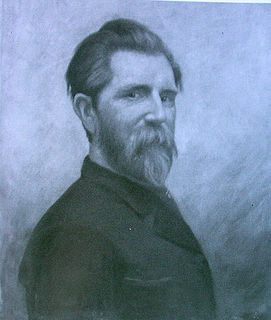 W
WHans Dahl was a Norwegian painter. Hans Dahl was most known for his paintings of Norwegian fjords and surrounding landscapes.
 W
WJohan Fredrik Eckersberg was a Norwegian painter most noted for his landscapes. Eckersberg was a prominent figure in the transition from Romanticism to Realism in 19th-century Norwegian art, both as an artistic painter and a teacher at his own art school in Oslo.
 W
WJens Ellingsen Ekornes was a Norwegian businessperson. He was the founder of Norwegian based furniture company, Ekornes ASA.
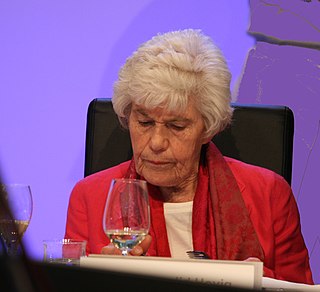 W
WIngrid Espelid Hovig was a Norwegian television chef and author of cook books. Through appearances on her cooking show Fjernsynskjøkkenet over 26 years, between 1970 and 1996, she came to be considered the "culinary mother" of Norway, with the comparison "the Julia Child of Norway" often applied.
 W
WThomas Nicolay Fearnley was a Norwegian shipping magnate, industrialist and philanthropist.
 W
WJonas Ekman Fjeldstad was a prize-winning Norwegian oceanographer and mathematician.
 W
WKai Breder Fjell was a Norwegian painter, printmaker and scenographer.
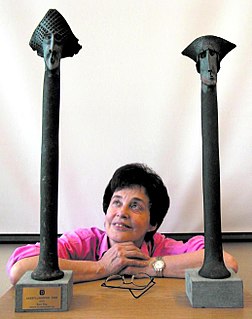 W
WKari Jorun Blakkisrud Hag is a Norwegian mathematician known for her research in complex analysis on quasicircles and quasiconformal mappings, and for her efforts for gender equality in mathematics. She is a professor emerita of mathematics at the Norwegian University of Science and Technology (NTNU). With Frederick Gehring she is the author of the book The Ubiquitous Quasidisk .
 W
WPaul Ramsey Hawley was an American physician who served as command surgeon of the European Theater of Operations, United States Army from January 1942 to May 1945. After the war, he was appointed as medical director of the U.S. Veterans Administration and chief executive officer of Blue Cross/Blue Shield.
 W
WLudvig Hektoen was an American pathologist known for his work in the fields of pathology, microbiology and immunology. Hektoen was appointed to the National Academy of Sciences in 1918, and served as president of many professional societies, including the American Association of Immunologists in 1927 and the American Society for Microbiology in 1929. He was the founding editor of the Archives of Pathology and Laboratory Medicine in 1926 and edited several other medical journals. He was knighted to the Order of St. Olav in 1929, and in 1933, he became professor emeritus of pathology at the University of Chicago. The Hektoen Institute for Medical Research—formerly the John McCormick Institute of Infectious Diseases—now bears his name.
 W
WThorstein Hallager Hiortdahl was a Norwegian chemist, mineralogist and politician.
 W
WWilhelm Christopher Holst was a Norwegian businessman who worked for the French resistance movement Free France during World War II, as a P2 agent and Chef de Reseau Billett (Alexandre) in France. After the German invation of Norway April 9 1940, and the Germans execution of his two sons, 15 & 16 years old, April 15 1940, he mobilized a strong dislike for the nazis and founded the secret circuit Billet, based in Paris and Marseille, on the memorial day in 1941. Prior to this, he worked for MI9 and was related to the operation of the Pat O'Leary Line in Marseille. In spring 1941 he was recruited through the Norwegian Ministry of Defense's intelligence office in London, as one of the first five Special Operations Executive (SOE) in the DF section for France, Clandestine & Communications.
 W
WJon Østeng Hov was a Norwegian photographer and writer. He was particularly known for his flower photos, and was a columnist in Adresseavisen for over thirty years.
 W
WRudolf Keyser was a Norwegian historian, archaeologist and educator.
 W
WArne Kildal was a Norwegian author, librarian and civil servant.
 W
WPer Andreas Hildhe Kleppe was a Norwegian economist and politician for the Labour Party.
 W
WPer Lasson Krohg was a Norwegian artist. He is most frequently associated with the mural he created for the United Nations Security Council Chamber, located in the United Nations building in New York City.
 W
WEugeniusz Kwiatkowski was a Polish politician and economist, Deputy Prime Minister of Poland, government minister and manager of the Second Polish Republic.
 W
WHans Osterfeld "H.O." Lange was a Danish librarian and egyptologist. He was chief librarian at the Royal Danish Library.
 W
WErling Sven Lorentzen was a Norwegian-Brazilian shipowner and industrialist. He founded Aracruz Celulose in 1968. He was the widower of Princess Ragnhild, the eldest child of King Olav V of Norway. In addition to being a Norwegian princess, his wife was in the line of succession to the British throne and occupied the 18th place at the time of her birth. Erling Lorentzen was a member of the Lorentzen family of shipping magnates.
 W
WMajor General Kristin Lund is a retired senior officer of the Norwegian Army. She was the first woman to command a United Nations peacekeeping operation, serving as Force Commander for the United Nations Peacekeeping Force in Cyprus from 2014 to 2016 and later as Head of Mission/Chief of Staff of the United Nations Truce Supervision Organization from 2017 to 2019.
 W
WJoseph Marie Antoine Hubert Luns was a Dutch politician and diplomat of the defunct Catholic People's Party (KVP) now merged into the Christian Democratic Appeal (CDA) party and jurist. He served as Secretary General of NATO from 1 October 1971 until 25 June 1984.
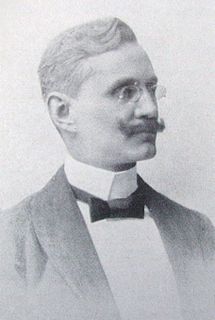 W
WBaron Erik Teodor Marks von Würtemberg was a Swedish jurist and politician. He served as Foreign Minister of Sweden 1923–1924 in the government of Ernst Trygger, representing the General Electoral Union. During his tenure, Sweden recognised the Soviet Union.
 W
WKirill Afanasievich Meretskov was a Soviet military commander. Having joined the Communist Party in 1917, he served in the Red Army from 1920. During the Winter War of 1939–1940 against Finland, he had the task of penetrating the Mannerheim Line as commander of the 7th Army. He was awarded the title of Hero of the Soviet Union shortly afterwards.
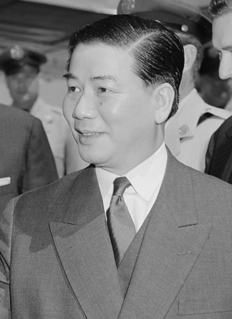 W
WNgô Đình Diệm was a Vietnamese politician. He was the final prime minister of the State of Vietnam (1954–55), and then served as President of South Vietnam from 1955 until he was captured and assassinated during the 1963 military coup.
 W
WRasmus Tønder Nissen was a Norwegian, educator, theologian and politician.
 W
WDaniel Enoch Nathanael Nordlander was a Swedish Lieutenant Colonel of the Swedish Army, Adjutant to King Charles XV of Sweden, Director-general of Kongl. Telegrafverket, and Member of Parliament of the Riksdag of Sweden of the First Chamber for the Västerbotten County (1883-1885).
 W
WAnders Johnsen Nummedal was a Norwegian archaeologist. He is known for discovering the Fosna culture.
 W
WSigurd Vilhelm Odland was a Norwegian theologian and church leader.
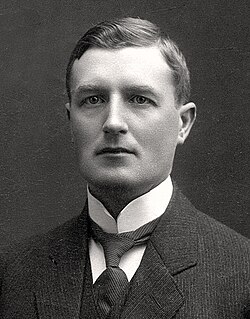 W
WMagnus Bernhard Olsen was a Norwegian philologist who specialized in Old Norse studies.
 W
WPark Chung-hee was a South Korean politician and army general who served as the President of South Korea from 1963 until his assassination in 1979.
 W
WOlav Eduard Pauss was a Norwegian ship-owner, shipbroker and consul-general in Sydney, Australia. He served as the consul-general of Sweden and Norway in New South Wales and Queensland from 1902 to 1905 and as the Norwegian consul from 1905 to 1928. He also acted as Danish consul for two separate periods and as Swiss consul. At his death he was described as "one of the best known shipping men in Australia."
 W
WAnders Sandvig was a Norwegian dentist most noted for having founded Maihaugen, an innovative regional ethnological and architectural museum in Lillehammer, documenting the vernacular architecture of Gudbrandsdalen.
 W
WWilhelm Maribo Schøyen was a Norwegian entomologist. He was Norway's first government entomologist.
 W
WHelga Stene was a Norwegian educator, feminist and resistance member. She was born in Notodden, and was a sister of Aasta Stene. She graduated from the University of Oslo in 1932. She lectured a few years at universities in Berlin and in Sweden. From 1937 to 1966 she was assigned to various secondary schools in Oslo, as teacher and administrator. During the occupation of Norway by Nazi Germany she played a leading role in the parents' resistance, including massive protests against new laws for regulating children's life. She was decorated Knight, First Class of the Order of St. Olav in 1977.
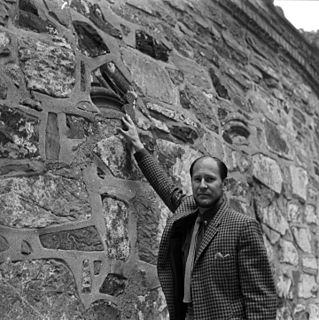 W
WStephan Tschudi-Madsen was a Norwegian art historian. Tschudi-Madsen was the first antiquarian at the Norwegian Directorate for Cultural Heritage from 1959 until 1978 and was Director-general between 1978–1991. He was the Advisory President of the International Council on Monuments and Sites (ICOMOS) from 1981-1990 and ICOMOS Norway President 1978-1992.
 W
WKārlis Augusts Vilhelms Ulmanis ([ˈkaːrlis ˈɑuɡusts ˈvilxɛlms ˈuɫmɑnis], was a Latvian politician. He was one of the most prominent Latvian politicians of pre-World War II Latvia during the interwar period of independence from November 1918 to June 1940. He served four times as Prime Minister, the last time as the head of an authoritarian regime, during which he subsequently also adopted the title of President of Latvia.
 W
WThorolf Vogt was a Norwegian geologist, professor and Arctic explorer.
 W
WLauritz Weidemann was a Norwegian judge, civil servant and politician. He served as county governor for almost 35 years, participated at the Norwegian Constituent Assembly in 1814, and was a member of the Parliament of Norway for several periods.
 W
WHans Peter Westfal-Larsen was founder of Westfal-Larsen, a group of shipping companies based in Bergen, Norway.
 W
WRichard Bernhard With was a Norwegian ship captain, businessman and politician for the Liberal Left Party. He is known as the founder of the shipping companies Vesteraalens Dampskibsselskab and Hurtigruten.
 W
WEgil Anders Wyller was a Norwegian philosopher, historian, non-fiction writer and translator. He was born in Stavanger, the son of Trygve Christian Wyller and Anne Kathrine Dons, and brother of Thomas Christian Wyller. He was assigned professor at the University of Oslo from 1969. Among his books are Tidsproblemet hos Olaf Bull from 1958 and Enhet og annethet from 1981. He has translated dialogues of Plato into Norwegian language, and been a co-editor of the book series Idé og tanke. He was decorated Knight, First Class of the Order of St. Olav in 2000.